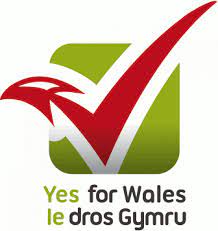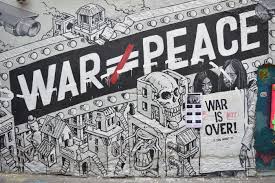- Not acting the part - 24th February 2026
- Death wish - 23rd February 2026
- Return to sender - 20th February 2026

Political skullduggery such as ‘buying’ votes, or tearing down a rival’s poster has always represented a good story for our Editor, Welshman Phil Parry, during his 40 year journalistic career, and this is now highlighted by revelations of what may have been underway in an important election abroad.
Earlier he described how he was assisted in breaking into the South Wales Echo office car when he was a cub reporter, recalled his early career as a journalist, the importance of experience in the job, and made clear that the ‘calls’ to emergency services as well as court cases are central to any media operation.
 He has also explored how poorly paid most journalism is when trainee reporters had to live in squalid flats, the vital role of expenses, and about one of his most important stories on the now-scrapped 53 year-old BBC Wales TV Current Affairs series, Week In Week Out (WIWO), which won an award even after it was axed, long after his career really took off.
He has also explored how poorly paid most journalism is when trainee reporters had to live in squalid flats, the vital role of expenses, and about one of his most important stories on the now-scrapped 53 year-old BBC Wales TV Current Affairs series, Week In Week Out (WIWO), which won an award even after it was axed, long after his career really took off.
Phil has explained too how crucial it is actually to speak to people, the virtue of speed as well as accuracy, why knowledge of ‘history’ is vital, how certain material was removed from TV Current Affairs programmes when secret cameras had to be used, and some of those he has interviewed.
He has disclosed as well why investigative journalism is needed now more than ever although others have different opinions, how the coronavirus (Covid-19) lockdown played havoc with media schedules, and the importance of the hugely lower average age of some political leaders compared with when he started reporting.

Politicians getting into hot water during a tightly-fought election has always made good copy.
Journalists leap on evidence, or accusations, of a political rival’s poster being torn down, coercion used to get votes, or supposedly neutral state organs employed by the party in power to boost their electoral chances.
Wales has, sadly, been no stranger to these tactics (alleged and otherwise) in the past.
All of this is, though, put centre stage by an election many miles away in Argentina.
The libertarian Javier Milei ‘won’, yet he received only 30 per cent of the vote in the first ballot, with the leader of a centre right coalition Patricia Bullrich getting a mere 24 per cent.


The winner of the first round of voting with 37 per cent of the vote, was the Peronist economy minister Sergio Massa, despite the fact that his country has an inflation rate of 138 PER CENT!
Some say it is more than this, but nobody knows for sure.
It seems that Peronist officials have been rattled by the popularity of Mr Milei, so it’s been reported that they activated their vast political apparatus the party controlled.

One man said he had been told his garage would be shut if he did not vote the right way, though he declined to say who had pressured him and for whom he was told to vote.
There have been claims that 7,000 taxis were used by Peronists to get voters to polling stations.
The effort to win back disillusioned voters was concentrated in the poor suburbs of Buenos Aires province, where more than a third of Argentines live.

Days before the election, lorries owned by one municipality called Lomas de Zamora, were found to be delivering refrigerators, housing materials and mattresses to voters.
One person later thanked the Peronist president of the local legislature for a new stove.
In September a Puntero, or ward boss, was caught in another district using 48 debit cards to withdraw cash that belonged to employees of the local legislator.
Police suspect the money was intended to buy votes.


The Argentine Government proclaimed: “…all the things that could be lost” if a free-market candidate like Patricia Bullrich—or, worse, a libertarian like Mr Milei—came to power.
Two days before the election, bus and railway stations put up signs showing customers how much their ticket prices would increase if subsidies, which cost the government around two per cent of GDP a year, were removed.

One message on a card reader at a train station said that prices would remain at 56 pesos ($0.16 cents) under Mr Massa, but would rise to 1,100 pesos under Mr Milei or Ms Bullrich.
Some apparent tactics were cruder.
On election day no posters were visible for Mr Milei or Ms Bullrich in the district of José C. Paz, in Buenos Aires province, which has long been governed by Peronists, and one local person claimed that people who campaigned for Mr Milei or Ms Bullrich had received threats from thugs.

Regrettably this sort of alleged behaviour finds an echo closer to home.
As a reporter on BBC Cymru Wales Today (WT) in the 1980s, I had to wait outside a police station as a leading politician was being questioned inside as part of an investigation into allegations that a rival’s posters had been ripped down.
During the closely-fought devolution referendum campaign in Wales, there were accusations (which were never proved) that a prominent anti-devolution politician had been offered inducements such as a peerage to stay out of the fray.
 Politics is warfare by legal and peaceful means, but this is dirty war!
Politics is warfare by legal and peaceful means, but this is dirty war!
The memories of Phil’s decades long award-winning career in journalism (when dubious political methods often featured in his copy!) as he was gripped by the rare neurological disease Hereditary Spastic Paraplegia (HSP), have been released in a major book ‘A GOOD STORY’. Order it now!

Publication of another book, however, was refused, because it was to have included names.
Tomorrow – Phil looks at how with migration numbers at a record level, and Wales now a ‘nation of sanctuary’ for asylum-seekers, the key issue is being raised of whether foreigners bring benefits or harm.









